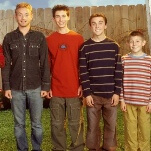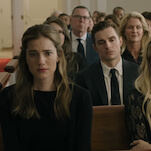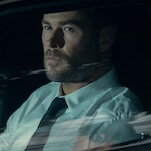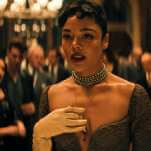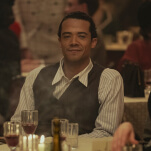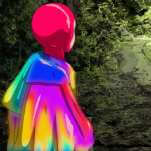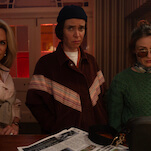Levity

After establishing himself with a decade's worth of comedies that married sophisticated verbal wit with physical slapstick, Woody Allen surprised everyone with 1978's Interiors, an Ingmar Bergman homage that seemed to take place on another planet, one populated by mopey souls with no sense of humor. Allen's about-face was meant to signal a new seriousness in his work, but his somber tone seemed arid and artificial, with exchanges as unnatural in their own way as the Orgasmatron in 1973's Sleeper. After penning the scripts for Men In Black and the Bill & Ted movies, writer-director Ed Solomon attempts the same stunt for his feature directorial debut Levity, which betrays its title with nearly as much rigor as Todd Solondz's Happiness. The few laughs that do creep into Solomon's portentous melodrama serve as an unwitting reminder that laughter is part of the human condition, and shows how peculiar people can seem in a world where it doesn't exist. In the colorless urban milieu, rare signs of flesh-and-blood humanity are provided by the wonderful cast, led by Billy Bob Thornton in an understated turn as a paroled felon who seeks absolution for killing a convenience-store clerk in a botched robbery 23 years earlier. With little more than the clothes on his back and the grim memento of a news clipping with the victim's face on it, Thornton lands a job at a poor community center run by troubled pastor Morgan Freeman. Freeman opens his parking lot to patrons of the dance club across the street, charging a 15-minute sermon as a fee—a small price to pay for suburban kids like Kirsten Dunst, who comes for her nightly ritual of self-destructive bingeing. As Thornton becomes a presence in her life, he also reaches out anonymously to Holly Hunter, his victim's sister, who has problems of her own with a teenage son (Geoffrey Wigdor) immersed in gang violence. What follows is a turgid, overly determined redeem-a-thon: Thornton makes amends by reaching out to Dunst, Wigdor, and the boys at the community center, Freeman hopes for salvation from his criminal past, and Hunter wants a life full of tragic mistakes to somehow right itself. Solomon handles their crises of conscience with a studied compassion that hangs over scenes like a lead weight, though the actors (particularly Dunst) do their best to bring more range to his gray palette. But in a film where transcendence means lofting a symbolic snowball toward the heavens, even they can't cut through all the preciousness.




